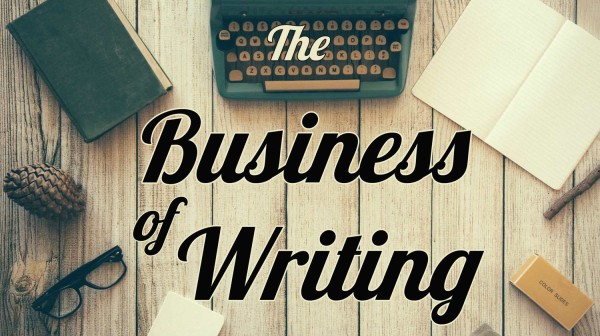On the business of writing
By Jen Sookfong Lee
In 2002, when I formed my writing group (still going strong!) with June Hutton and Mary Novik, we made a promise that we would always, always share our experiences with the business of writing—the shadowy dealings and details that occur behind the scenes and that are almost never discussed. Even then, as neophyte novelists, we knew that those details could impact our careers hugely. Even then, we knew that feeling adrift in a sea of query letters, contracts, and marketing plans was not a feeling that anyone should have to weather alone.
Recently, I had the opportunity to sit in on another writing group, which was, like ours, comprised of all women. They too had made a promise to share all the business details that were relevant to their careers, careers that span writing fiction, poetry, screenplay, and non-fiction. It was then my brain experienced one of its explosions/revelations, which is this: hiding what we are able to earn, and how we find ways to earn what we deserve, only means that we are not getting paid as much as we could, and that we are not learning ways to ask for what we need. And the reality is that this problem—of accepting what is offered even if it’s not enough—affects authors who are marginalized, who come from backgrounds not often seen in Canlit.
When I sold my first novel, I was 28 years old, a scrappy Chinese girl from East Vancouver, who just felt damned lucky an editor wanted to read my novel at all. In that process, from acquisition to editing to promotion, I said yes to almost everything that was asked of me, even if it was a problematic, vaguely racist event, or a revision that never felt quite right. Asking for more, refusing a request, or setting boundaries felt like things I couldn’t do. What if I got a reputation for being difficult? What if this contract, this moment I had been working toward my whole life, evaporated because I was too assertive? I was acutely aware that my presence was not usual or expected and that, if my first novel contract and I disappeared, the largely cis, straight, and white publishing world wouldn’t even notice. My inner voice said, You have what you’ve always wanted. Keep your head down. Don’t piss anyone off. Be nice.
Any article about the business of writing will advise on how to negotiate a contract, what kind of social media presence you should have, and how to perform at a reading. I don’t need to repeat that. My concern is about how you can manage your business and value yourself and your wellness at the same time. Think of me as your kind but firm Auntie Jen, the one who will feed you a nutritious casserole, while telling you how to fill out your tax return properly (full disclosure: I have never baked a casserole and I pay someone to do my taxes, but stay with me).
Talk to other writers.
When we talk to other writers about what we are paid and how we work, the secrecy vanishes, and we have tools and evidence to back us up when we are asking publishers and event organizers for what we want, whether that’s a bigger fee or an accessible venue. If your friend who is at the same career stage as you was paid three times what you were offered and given a transportation budget, something is up. And you know you can ask for better.
Your CanLit News
Subscribe to Open Book’s newsletter to get local book events, literary content, writing tips, and more in your inbox
Establish your bottom line.
This is the level of compensation that is the minimum you will accept before you walk away. This doesn’t have to be money. This could a minimum of exposure, meaning you will do an event for free if it will provide you with a great audience and wide promotion. Or it could be a minimum of purpose, meaning you will participate in an event if it speaks to a social or political cause you really believe in. Ask yourself: what do I need to feel like an event is worth it?
Know your schedule.
It can be easy to say yes to every project and event you’re asked to do. After all, writing is a feast-or-famine vocation, which results in most of us saying yes to all the opportunities when they are offered to us, because what if they all dry up one day? However, it is your writing that brought you these opportunities in the first place, so take care to leave time for that too. We write because we love it. That’s not time anybody wants to lose. As well, even though events are also social time for many of us, they are still work and you are still expending energy to talk about your writing and yourself. So know your own energy levels and build in time to live your life. You know, that stuff you do other than writing (for me, that’s eating ramen and singing along to bombastic Broadway show tunes).
To this day, I have difficulty saying no or asking for what I deserve, but I have forced myself to ignore the persistent worry that I’m not compliant enough. Publishing is never easy and being paid a living wage is always a fight. Prioritizing your needs and asking for the space to address them ensures that publishers and organizers are engaging with you in transparency and this is always a good thing. Realism and honesty means the publishing and promotion journey will be kind, efficient, and rewarding for everyone. Auntie Jen says so.
The views expressed by Open Book columnists are those held by the authors and do not necessarily reflect the views of Open Book.
Jen Sookfong Lee was born and raised in Vancouver’s East Side, and she now lives with her son in North Burnaby. Her books include The Conjoined, nominated for International Dublin Literary Award and a finalist for the Ethel Wilson Fiction Prize, The Better Mother, a finalist for the City of Vancouver Book Award, The End of East, The Shadow List, and Finding Home. Jen acquires and edits for ECW Press and co-hosts the literary podcast, Can’t Lit.





